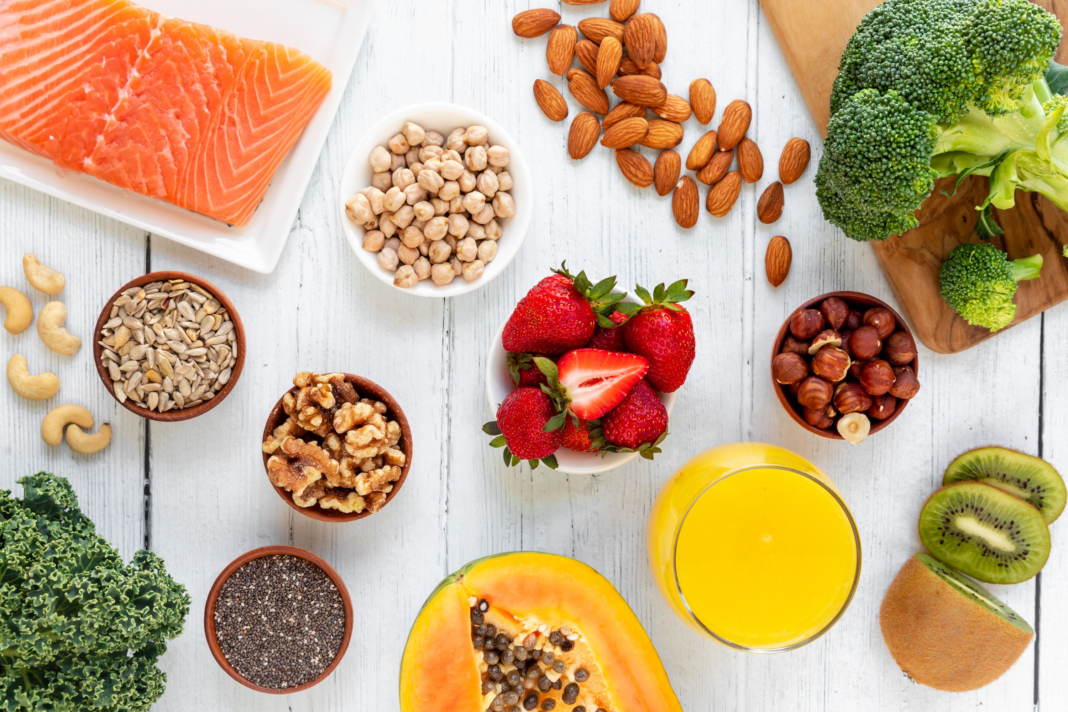Maintaining a fit and healthy body is a goal many people aspire to, but achieving it requires more than just exercising regularly. One of the most important factors is diet. What we eat fuels our body, affects our energy levels, influences our weight, and even impacts mental health. Understanding the best diet for a fit and healthy body can help you look better, feel better, and live a longer, healthier life.
Why a Balanced Diet Matters
A balanced diet provides the essential nutrients your body needs to function properly. These nutrients include:
- Proteins – Essential for muscle repair and growth.
- Carbohydrates – The primary source of energy.
- Fats – Necessary for hormone production and brain health.
- Vitamins and minerals – Support immunity, bone health, and metabolism.
- Water – Keeps the body hydrated, helps digestion, and removes toxins.
Eating a diet lacking in any of these components can lead to fatigue, poor immunity, or unwanted weight gain. On the other hand, a diet rich in these nutrients can enhance performance, improve mood, and support overall well-being.
Core Principles of a Healthy Diet
While there’s no “one-size-fits-all” approach, certain principles apply to everyone looking for a fit and healthy body:
1. Prioritize Whole Foods
Whole foods, like vegetables, fruits, whole grains, lean meats, and nuts, are packed with nutrients. Unlike processed foods, they don’t contain added sugars, unhealthy fats, or artificial chemicals. For example, an apple provides natural fiber and vitamins, whereas a candy bar mainly offers empty calories.
2. Include Lean Protein
Protein is the building block of muscles. Sources like chicken, turkey, fish, eggs, legumes, and tofu help repair tissues and maintain muscle mass, especially when combined with regular exercise. A protein-rich diet also helps you feel full longer, reducing overeating.
3. Eat Healthy Fats
Not all fats are bad. Healthy fats, such as those found in olive oil, avocado, nuts, and fatty fish, are crucial for brain health and energy production. Avoid trans fats and limit saturated fats, commonly found in fried foods and processed snacks.
4. Balance Your Carbohydrates
Carbs often get a bad reputation, but they are essential for energy. Focus on complex carbohydrates like whole grains, brown rice, quinoa, and sweet potatoes. These release energy slowly, keeping blood sugar levels stable, unlike refined carbs such as white bread or sugary drinks.
5. Stay Hydrated
Water is essential for every bodily function. Drinking enough water improves digestion, helps control appetite, and keeps your skin healthy. A general rule is to drink at least 8–10 glasses a day, but needs may vary depending on activity level and climate.
6. Portion Control
Even healthy foods can contribute to weight gain if eaten in excess. Learn to listen to your body’s hunger cues and practice mindful eating. Smaller, frequent meals throughout the day can help maintain energy levels and prevent overeating.
Sample Daily Diet Plan for a Fit and Healthy Body
Here’s a simple example of how you can structure your meals:
| Meal | Foods to Include |
|---|---|
| Breakfast | Oatmeal with fruits, chia seeds, and a boiled egg |
| Mid-Morning | Greek yogurt with a handful of almonds |
| Lunch | Grilled chicken or tofu, quinoa, and mixed vegetables |
| Snack | Apple slices with peanut butter or carrot sticks |
| Dinner | Baked salmon, sweet potato, and steamed broccoli |
| Evening Snack | Herbal tea or a small portion of mixed nuts |
This plan balances protein, carbohydrates, healthy fats, vitamins, and minerals, ensuring your body gets what it needs to stay fit and energized.
Lifestyle Tips to Complement a Healthy Diet
- Exercise regularly: Combine strength training and cardio for overall fitness.
- Sleep well: Aim for 7–8 hours of sleep to aid recovery and metabolism.
- Avoid processed foods and sugar: Reduce empty calories that harm health.
- Limit alcohol: Alcohol can interfere with metabolism and weight management.
- Manage stress: High stress can lead to unhealthy eating habits.
Common Myths About Diets
- Skipping meals helps lose weight – Skipping meals can slow metabolism and lead to overeating later.
- Carbs are bad – Complex carbs are essential for energy and should not be avoided entirely.
- Fat-free diets are healthy – Healthy fats are necessary; avoiding fats completely can harm hormone balance.
Understanding the facts can help you make better choices for your health and fitness.
Conclusion
The best diet for a fit and healthy body is not about extreme restrictions or trendy diets. It’s about balance, variety, and consistency. Eating nutrient-rich whole foods, incorporating lean proteins, healthy fats, and complex carbs, staying hydrated, and practicing portion control can transform your health. Paired with exercise, adequate sleep, and stress management, the right diet can help you achieve a body that is not just fit but truly healthy.
FAQs About the Best Diet for a Fit and Healthy Body
1. Can I lose weight without exercising if I eat a healthy diet?
Yes, a healthy diet can help with weight management, but combining it with exercise accelerates fat loss and improves muscle tone.
2. How many meals should I eat per day?
Most people benefit from 3 main meals and 1–2 healthy snacks. It’s more important to focus on nutrient quality rather than meal frequency.
3. Are supplements necessary for a healthy diet?
If your diet is balanced, supplements are generally unnecessary. However, some people may need specific vitamins or minerals based on medical advice.
4. Can I eat out and still maintain a healthy diet?
Yes, choose grilled, baked, or steamed dishes, prioritize vegetables, lean proteins, and avoid fried or heavily processed foods.
5. How long does it take to see results from a healthy diet?
Changes in energy levels can be noticed within a few days, but visible body changes usually take 4–8 weeks, depending on individual metabolism and consistency.





